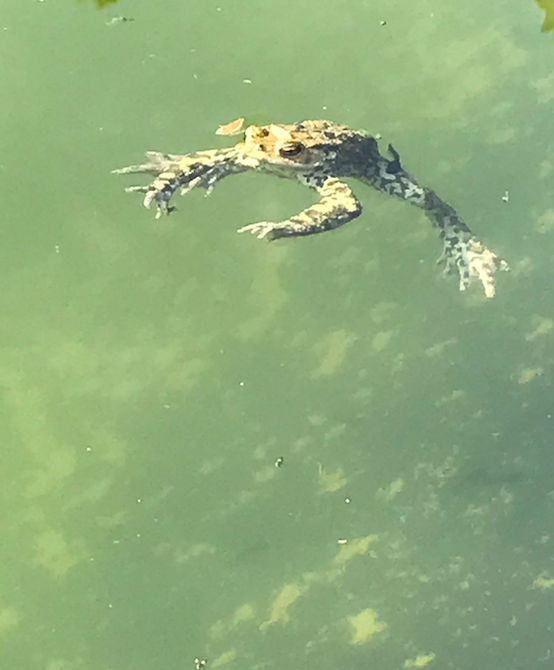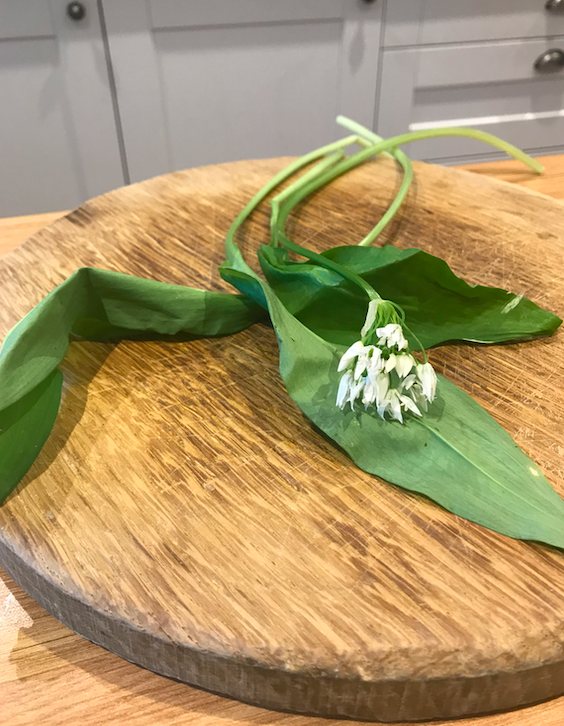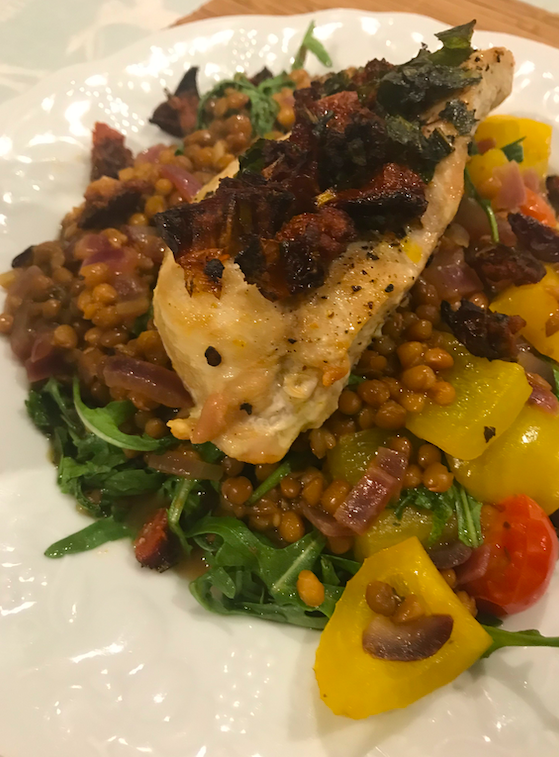Reflecting on a visit from Schools Consent Project
In our latest blog post, Teacher of English Mark Belassie-McCourt, discusses what happened when Schools Consen...
Read MoreHead of Pastoral Preetpal Bachra considers the complexities of engaging with our children while they are studying at home during this period of lockdown and suggests that relationships, reflection and reframing should be considered the new three Rs of education.

Even as a teacher, why can attempting to teach or work with our own children be an issue and, now that some of us are engaging with our children’s school studies, how can we make it work? This week I have been thinking about the new skills required in education right now and propose that the traditional three Rs of ‘reading, writing and arithmetic’ actually rely on three far more important Rs – relationships, reflection and reframing.
Relationships
When I embarked upon teaching, a colleague observed that no one starts teaching from scratch. His argument was that we have all had at least a nine-year apprenticeship in seeing teachers in action when we were at school. So, if we choose to remember, then we instinctively know what makes a good teacher. The adage goes that we rarely can remember what they said (or at least we embellish what we heard) but we certainly remember how they made us feel. At Bradford Grammar, I had the incredible Pete Kewley. His lessons brimmed with energy, he would crawl over desks urging, “go on, go on… then what happens?” as you stumbled towards an A level economics answer. I can’t believe scoring the winning goal in a World Cup final could provide more elation than getting one of Pete Kewley’s answers right and he certainly celebrated every success as only a Grimsby Town fan could. He loved the subject and we felt he loved seeing every one of us do well. Generations of pupils felt the same too and many of us still share those memories since his passing but the key to ‘deep learning’ and a ‘love of learning’ were the relationships he developed. When watching our own children work we have to work out what our relationship with them is going to look like and how to build it constructively – not so easy when schoolwork is involved and attention and motivation are to be inspired, whilst simultaneously dealing with our own work and now physical aches from being hunched over a computer for hours at a time (and, personally, I’m ready to audition for the main role of Quasimodo should Disney remake The Hunchback of Notre Dame). In order to build a relationship, we need to know where to ‘stand’ in relation to others – and shifting parental roles to work with our children is the most complex.
At a talk some years ago, James Shone, a wonderful speaker who set up the charity I Can and I Am, raised that we should consider how we walk alongside pupils on their journey. Sometimes we may need to walk ahead of them, sometime beside and sometimes behind. In fact, a healthy aim is for us eventually to be walking behind our children as they stride in the dawn of emerging possibilities, but along the way we may need to adjust our positions. However, he also introduced the idea of inflating balloons and how offering encouragement and support to our children makes them stronger, i.e. their balloon is inflated, and criticism deflates them. Transactional therapists would point to ‘warm fuzzies’ and ‘cold pricklies’ as well as ‘strokes’ instead. In short, we have to think about how we speak to children and what messages we send and that begins with looking at ourselves.
Reflection
How many times do we urge reflection? It is perhaps more often than we think and especially as an instruction for others. For me it is the usual request for my sons to return to the scene of a chore. “Do these clothes look folded to you?” or “Do you think you should leave the plate there? Are you trying to develop your own cockroach colony?” The answer to all these questions is apparently “yes”. I am, in asking such questions though, requesting reflection on what has not been done rather than what has been done. What if I considered beginning with all that I should be grateful for, i.e. what has been done? David Steindl Rast has suggested that the pathway to happiness is gratitude. That is, if we can cultivate an appreciation of all the things that are valuable to us and freely given then we may be able to be happier. That is a difficult thing to consider when there is so much uncertainty. His ideas centre around the concept of ‘stop-look-go.’ This means taking the time to be aware of oneself and one’s surroundings and to really look at them. Once that is absorbed, we can then move forward again but perhaps now with clearer perspective.
 So, I decided to walk around the School and try to appreciate aspects that I might have taken for granted. On a sunny day, I stopped by the pond. I had walked past it many times recently on my way to and from the classroom but rarely felt I had time to look. This time I did and was astounded to see what appeared to be a frog sunbathing. As I looked around the pond there were a few more frogs doing the same. Now, they may not have been sunbathing, but it looked like they were. I went home and asked the family, “do frogs sunbathe?” There was no knowledgeable answer. Ultimately, I emailed Nick Welford, our Head of Science. The point here, however, is that I stumbled across a question out of curiosity and that curiosity was piqued by taking the time to reflect and to be grateful. One way of getting our pupils/children to feel more connected to their work is to ask them to reflect on it and that can be done through asking if they can help you understand. “What have you been looking at in history today? That sounds interesting, can you tell me/show me/explain to me?” In doing so, we are also building up the relationship.
So, I decided to walk around the School and try to appreciate aspects that I might have taken for granted. On a sunny day, I stopped by the pond. I had walked past it many times recently on my way to and from the classroom but rarely felt I had time to look. This time I did and was astounded to see what appeared to be a frog sunbathing. As I looked around the pond there were a few more frogs doing the same. Now, they may not have been sunbathing, but it looked like they were. I went home and asked the family, “do frogs sunbathe?” There was no knowledgeable answer. Ultimately, I emailed Nick Welford, our Head of Science. The point here, however, is that I stumbled across a question out of curiosity and that curiosity was piqued by taking the time to reflect and to be grateful. One way of getting our pupils/children to feel more connected to their work is to ask them to reflect on it and that can be done through asking if they can help you understand. “What have you been looking at in history today? That sounds interesting, can you tell me/show me/explain to me?” In doing so, we are also building up the relationship.
Reframing
Well this all sounds rather lovely – just toddle outside, look at nature, politely enquire what your children are doing and they will joyfully explain Pythagoras’ Theorem whilst carving up some freshly baked brownies into triangles as exhibit A.
Some parents may have this experience, but some won’t. Hopefully, we will all have had these positive experiences some of the time but there may have been or will be some tension as all of us ‘hit the wall’ or get ‘cabin fever’ at some time. (Where do these phrases come from? Perhaps another teacher will receive an email from me this week…) When that occurs then we may have to reframe how we view our situation. In Cognitive Behavioural Therapy, the term ‘thinking errors’ is used. Recently, we have been looking at this with the C and D year groups with a summary sheet of common thinking errors. One of the obstacles to engaging teenagers is how they have perceived a situation. There is no short cut to changing the impact of thinking errors. Instead, we have to get children to be aware of their thoughts and to question them through methods such as Socratic questioning but also to focus on process not outcomes, although our sights should be set to challenge ourselves.
There is also the difficulty in keeping up motivation with academic pursuits and this is when some negativity can creep in – and that is not just in pupils. I was inadvertently helped this week by two conversations. The first was with a headteacher of a secondary school, who focused on how extraordinary it was to be living in such conditions. That her pupils would be able to tell their children how school had to be. In this moment, it is crucial to enjoy the experience, to record it, to share it. That helped me with reframing the current situation which can sometimes feel that it has to be endured.

 The second occurred whilst on a walk with Sarah. At first I thought it best to say nothing but the smell then became quite strong. “Have you eaten garlic today?” I asked. Sarah observed that we had eaten together that day, as we had every day and that there was nothing particularly ‘garlicky’ in the meals. “Well, I think you have and it is very strong,” I said. “That will be the wild garlic,” she replied. Being raised in a city, I have regularly fallen for the rural remedies and witchcraft offered by my wife’s side of the family (my consumption of a tablespoon of balsamic vinegar as a cure for hay fever being the last one that caused them great mirth). I was not being taken in by this. She reached over the wall, picked what appeared to be daisies and then constructed a fantastic chicken and wild garlic dish for supper, which I’ve even now added to the list of recipes on the Bryanston cookery web pages too! Indeed, my way of seeing the world is being reframed by her rural knowledge and this is essential at this moment of time. There are still things we can learn in those lessons if we are willing to engage. Or, consider doing the best you can with – what you have, where you are and in the time you have (which may be an adaptation from a quote by Theodore Roosevelt).
The second occurred whilst on a walk with Sarah. At first I thought it best to say nothing but the smell then became quite strong. “Have you eaten garlic today?” I asked. Sarah observed that we had eaten together that day, as we had every day and that there was nothing particularly ‘garlicky’ in the meals. “Well, I think you have and it is very strong,” I said. “That will be the wild garlic,” she replied. Being raised in a city, I have regularly fallen for the rural remedies and witchcraft offered by my wife’s side of the family (my consumption of a tablespoon of balsamic vinegar as a cure for hay fever being the last one that caused them great mirth). I was not being taken in by this. She reached over the wall, picked what appeared to be daisies and then constructed a fantastic chicken and wild garlic dish for supper, which I’ve even now added to the list of recipes on the Bryanston cookery web pages too! Indeed, my way of seeing the world is being reframed by her rural knowledge and this is essential at this moment of time. There are still things we can learn in those lessons if we are willing to engage. Or, consider doing the best you can with – what you have, where you are and in the time you have (which may be an adaptation from a quote by Theodore Roosevelt).
So, after thinking about how to foster our relationship with children, getting them to feel gratitude for all that they have and reframing any negative thoughts, how can we make sure children (and all of us) feel motivated to keep on with the work that we have to do, especially when the days feel increasingly tiresome?
Reflecting on my visit to the pond, I remember a book I was given entitled Eat That Frog! by Brian Tracy which echoed the Mark Twain-attributed quote of, “Eat a live frog first thing in the morning and nothing worse will happen to you the rest of the day.” His book brings together the ideas of many management theorists. It suggests that we write down all the tasks we have to do AND are also important to the core of our being. Then, we prioritise them in the order that, if completed, would have the greatest impact on our lives. That priority task is our frog that we must consume first thing the following day. If there is more than one task of high importance, then “eat the uglier frog first”.
We might all be getting a little bored now and feeling there are quite a few ‘frogs’ to eat or even a sense of the ‘toad work’ that Philip Larkin wrote about. I have certainly felt both, as has the rest of the family. Perhaps, starting to plan the day ahead is as good a starting point as any to alleviate the sense of burden. I am going to make sure that it includes the fun things that feed the wellbeing of both our children and ourselves, as well as the academic.